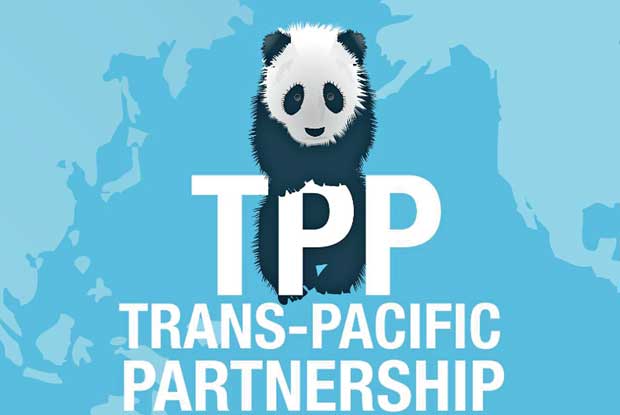Reply To:
Name - Reply Comment
Last Updated : 2024-04-20 11:47:00

Governments across the Asia Pacific have been searching for a path forward since President Donald Trump signed an executive order withdrawing the United States from the Trans-Pacific Partnership (TPP).
Australia is leading the effort to salvage the agreement, holding high-level discussions across the course of the past fortnight with Canada, Japan, Mexico, New Zealand, Malaysia and Singapore.
Among the various proposals to keep the deal afloat was Australian Prime Minister Malcolm Turnbull’s suggestion that the door could be opened to new members that might fill the space left open by Washington. In particular, Turnbull identified China as one possible candidate, telling the media: ‘Certainly there is the potential for China to join the TPP’.
The grounds for such optimism appear weak. First, the TPP is now much less attractive to potential new members without access to the US market. More importantly, the agreement contains at least one chapter of new trade and investment rules that Beijing is unlikely to accept: the provisions on state-owned enterprises (SOEs) and designated monopolies.
Provisions
Chapter 17 of the TPP sets out a series of obligations on governments and SOEs “principally engaged in commercial activities”. Article 17.4 requires SOEs to act ‘in accordance with commercial considerations’ when engaged in transactions unrelated to the provision of public services, and prohibits discrimination on the basis of nationality during such transactions. Articles 17.6–17.8 prohibit the specific provision of ‘non-commercial assistance’ (NCA) where it would cause ‘adverse effect’ or ‘injury’ to other TPP members. Article 17.10 sets out extensive transparency rules, requiring members to produce a publicly available list of all SOEs and provide information where requested relating to government involvement with SOEs.
China is not going to accept such provisions in a hurry. SOEs are a fundamental pillar of China’s socialist market economy system. More than 100,000 SOEs are estimated to contribute between 40–50 per cent of China’s non-agricultural GDP, and many of the largest Chinese companies are state owned — 76 of the 98 Chinese firms listed in the 2015 Fortune Global 500 are SOEs.
While market-oriented reforms in recent years have seen greater corporatisation of many Chinese SOEs. Beijing continues to afford many of these actors preferential treatment — behaviour that would potentially fall foul of the NCA provisions. Moreover, given the scale, complexity and fragmented nature of China’s state sector, the TPP’s transparency requirements may be considered too onerous in the short term. While ongoing reforms have meant many SOEs are increasingly able to disclose the material TPP members could request under Article 17.10, Beijing may be unwilling to expose the wider sector to such obligations just yet.
Temporary exemptions
China might be able to secure temporary exemptions from some provisions, as was achieved by existing TPP members with sizeable SOE sectors such as Malaysia, Singapore and Vietnam. However Beijing may still be resistant to Chapter 17, as it is believed to be part of a deliberate strategy by the United States to create an international regulatory regime for SOEs specifically targeting China’s use of such enterprises as tools of industrial policy and economic statecraft.
Previous attempts at regulating SOEs in international trade and investment agreements have lacked precision and coherencee. The Chapter 17 provisions crystallised a growing effort by the US and other OECD countries to correct this by having clear rules ensuring a level playing field between SOEs and private enterprises. This reflects the fact that the TPP was a truly new type of trade agreement pursuing more ambitious objectives than simple tariff and subsidy reductions. Given that Beijing was arguably the main target of these efforts, however, it is unlikely to embrace the provisions.
Accordingly, Australia’s suggestion to leave the door open to Chinese membership envisages a process that will necessarily involve significant negotiation to reshape the agreement to suit Beijing’s interests — something that is unlikely to be accepted by other TPP signatories. Tokyo has stated clearly that it believes the agreement is ‘meaningless without the United States’. Ottawa agrees. Reports also indicate that key members are opposed to any ‘watering down’ of the deal, making the likelihood of agreement on the removal of any chapters dubious.
US factor
The unfortunate reality is that the TPP will be near impossible to salvage without US participation, and it is simply not in China’s interest to agree to certain sections of the agreement. Nor is it in Australia’s interests to spend years renegotiating a trade agreement that will likely need whole chapters overhauled, if not removed entirely.
Canberra should thus turn its attention to more orthodox (if less ambitious) agreements that focus on traditional trade barriers, such as the Regional Comprehensive Economic Partnership currently being promoted by Beijing. Such agreements are the most likely path forward in the near-term. While the behind-the-border focus of the TPP may be lost for now, there is much to be gained from encouraging Chinese leadership of multilateral negotiations and trade liberalisation. In an emerging world of disarray and an era of declining US leadership, this would be a positive step forward for regional order.
(Victor Ferguson is a tutor and research assistant at the School of Politics and International Relations, The Australian National University)

Add comment
Comments will be edited (grammar, spelling and slang) and authorized at the discretion of Daily Mirror online. The website also has the right not to publish selected comments.
Reply To:
Name - Reply Comment
On March 26, a couple arriving from Thailand was arrested with 88 live animal
According to villagers from Naula-Moragolla out of 105 families 80 can afford
Is the situation in Sri Lanka so grim that locals harbour hope that they coul
A recent post on social media revealed that three purple-faced langurs near t